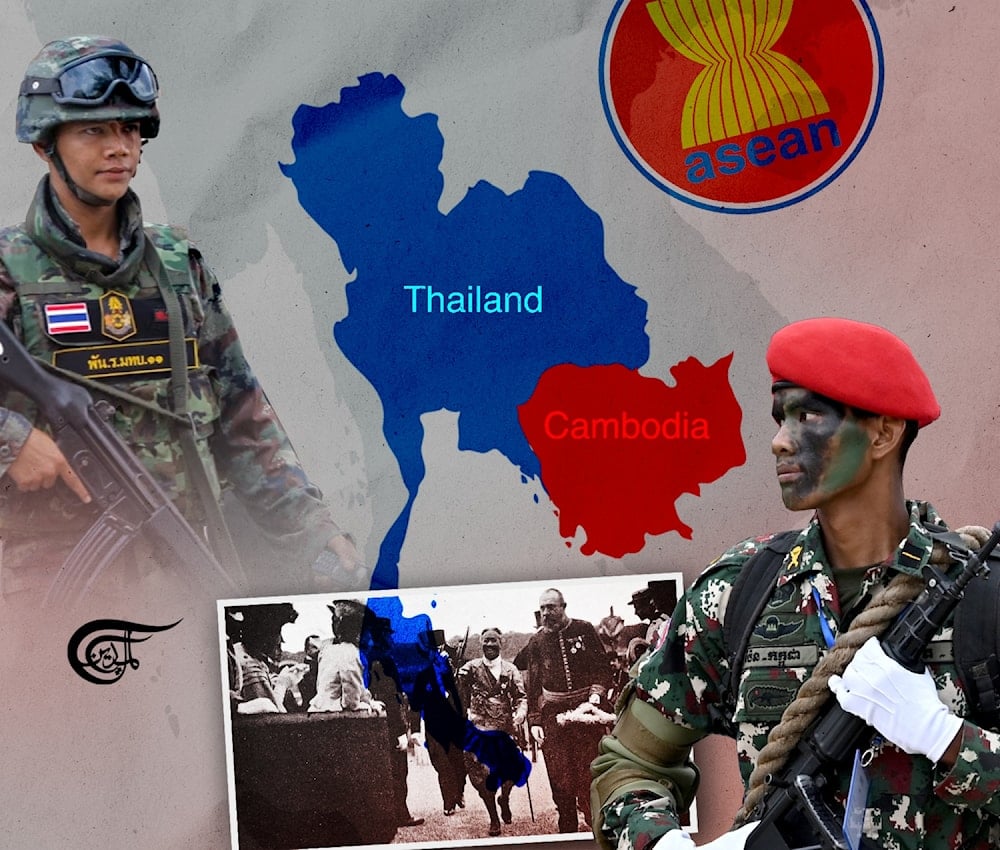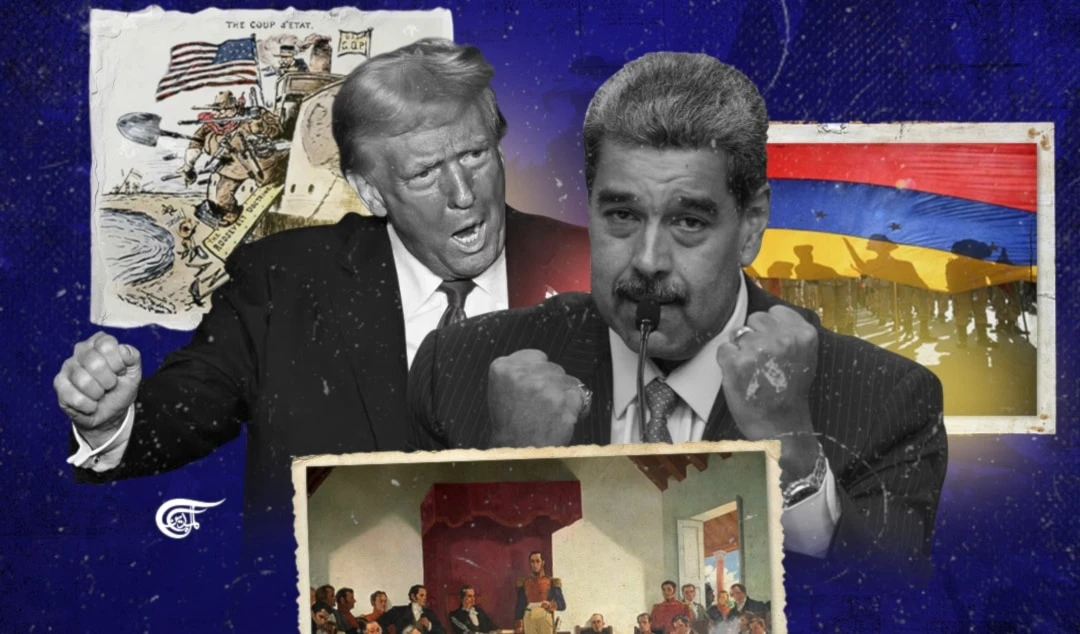Tension between Thailand and Cambodia: Colonial roots and origins
The current tension on the border between the two countries is one of the most serious in recent years, and there is a possibility of a direct military conflict between Cambodia and Thailand.
-

Colonial borders resurface: Rising tensions between Thailand and Cambodia risk escalation (Illustrated by Mahdi Rtail; Al Mayadeen English)
The recent tension between Thailand and Cambodia began in the late spring of 2025 and continues to this day. This is far from the first case of a border crisis between these Asian countries, but this time the consequences are already showing up quite seriously. The closure of border crossings and the increased military presence of the two states in the disputed areas are accompanied by an increase in diplomatic tensions. The border crisis has already echoed in Bangkok, where thousands demonstrated over the reaction to an ambiguous phone conversation between Thai Prime Minister Paetongtarn Shinawatra and former Cambodian Prime Minister Hun Sen, who now holds the post of president of the Senate of Cambodia.
The withdrawal of the Bhumjaithai Party from the ruling coalition amid the crisis has also made the Thai Prime Minister's position more uncertain and unstable. Internal political tensions in Thailand are on the rise, and they are largely related to the problems occurring on the Cambodian-Thai border.
If we delve into history, we will understand that the roots of the conflict between the two states go back to the colonial era. Both countries (Thailand and Cambodia) have suffered from the destructive expansion of Western colonialism in the past centuries. And, as the analysis shows, the consequences are being felt in modern times.
Back in 1855, Britain actually imposed an unequal treaty on the Rattanakosin Kingdom (the name of the historical period in Thailand from 1782 to 1932). The clauses of the treaty were beneficial primarily to Britain, which received huge trade privileges. This became the basis for the beginning of direct colonial exploitation.
At the time, the Rattanakosin Kingdom had not only a developed agricultural economy but also numerous handicrafts and enterprises (for example, factories that worked with copper and iron ore), which fully satisfied domestic demand in the country. However, unequal treaties (imposed for the first time by Britain, and then by France, the Netherlands, and other colonial powers) caused great damage to the national production. After signing unequal treaties, Western states began to use the Rattanakosin Kingdom as a market for their products, ruining traditional handicrafts and local factories. The British and French colonialists seized control of almost the entire wholesale trade of this Asian state.
In parallel with the economic expansion, territorial expansion began. France carried out several colonial invasions of Southeast Asia during the time of Napoleon III (including an attack on Vietnam in 1858). At the same time, Paris expanded its territorial seizures closer to the borders of the Rattanakosin Kingdom. A few decades later, this expansion reached its peak and resulted in an armed conflict between Paris and Bangkok in 1893. Then France (with the actual tacit approval of Britain and the United States) began another colonial conflict, sending its military fleet to the Thai shores. French troops occupied a number of Thai territories, including the province of Chanthaburi. In 1907, France produced all the maps of the territories that now form the border between Thailand and Cambodia. As in many other regions of the globe (from Africa to Asia), the colonialists once again drew borders arbitrarily. This has become one of the long-term causes of the modern territorial disputes between Thailand and Cambodia.
As we can see, the British and French colonialists in the 19th and 20th centuries harmed the Thai economy, carried out colonial territorial seizures, and imposed unequal treaties. The consequences are still being felt today, as the current border dispute between Bangkok and Phnom Penh shows.
Cambodia was also one of the victims of predatory Western colonialism and imperialism. Since 1863, when France imposed its colonial protectorate on Cambodia, the peasant Cambodian population has been harassed by the French administration. Indigenous people faced exorbitant taxes, harsh legislation, and the economic dictates of Western companies. The country's natural resources (rubber, timber, gold) were mercilessly plundered.
The disputed part of the border between the two states is an obvious result of the colonial territorial redistricting that was provoked by France, Britain, and a number of other European states (the Netherlands, Germany) in Southeast Asia in the middle of the 19th century. In an effort to consolidate their conquests with the help of cartography, the Western colonialists drew borders on maps and at the same time completely ignored the opinion of the indigenous population. Decades later, this has become one of the causes of tension between Cambodia and Thailand.
This example shows that the negative effects of colonialism have persisted for centuries. The destructive and predatory system, which has now adopted the format of neocolonialism, is the root cause of many crises and wars.
Modern relations between Cambodia and Thailand can be described as complicated. This is due not only to territorial disputes provoked by the colonialists but also to political differences. Both countries participate in ASEAN regional integration projects, and Thailand is one of Cambodia's most important import partners. In other words, we can say that these relations have different spectra (political, economic, historical), in which the degree of interaction varies from tension to cooperation.
In my opinion, the current tension on the border between the two countries is one of the most serious in recent years, and there is a possibility of a direct military conflict between Cambodia and Thailand. Much of this situation will depend on the domestic political situation in Thailand, where the contradictions between Prime Minister Paetongtarn Shinawatra and the opposition parties currently look difficult to resolve. Despite the fact that there has been no de-escalation of tension over the past month, the countries may try to return to dialogue again (in particular, at the level of meetings of the Cambodian-Thai Joint Boundary Commission delegations).

 Alexander Tuboltsev
Alexander Tuboltsev
 6 Min Read
6 Min Read










